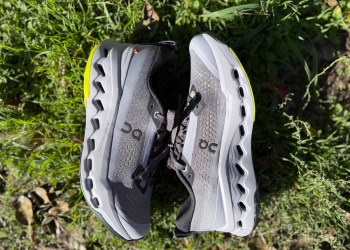A former collegiate sprinter has filed a lawsuit against the NCAA and two universities, alleging violations of New Jersey and New York human rights laws, which prohibit discrimination based on gender identity and expression.
Sadie Schreiner, a 200m and 400m sprinter from Hillsborough, N.J., says athletic officials at SUNY Geneseo and Princeton University denied her entry into races by citing an executive order from former U.S. President Donald Trump that barred transgender women and girls from competing in women’s sports.
The NCAA followed the president’s order by revising its participation policy, which partially barred transgender athletes from participating in NCAA women’s competitions. Under the new rules, athletes could still practise with a team consistent with their gender identity and receive other student-athlete benefits, but would not be eligible to race.
At the time of the policy change, Schreiner was competing for Rochester Institute of Technology (RIT) in NCAA Division III, where she held the conference’s top times in the women’s 200m and 400m.
NCAA follows Trump’s executive order, limiting male-born transgender athletes in women’s sports
In March 2025, SUNY Geneseo track coach Chris Popovici allegedly told Schreiner that allowing her to compete would risk invalidating results for all participants. He offered her a spot in the men’s division or an exhibition race, instead. Schreiner had competed in the same meet a year earlier, winning both the women’s 200m and 400m.
Schreiner was also removed from RIT’s track and field roster. She continued competing unattached, without school or club representation.
Two months later, Schreiner attempted to race as an unattached athlete at Princeton University, but she was removed from the start list for similar reasons.
The lawsuit also names the NCAA for allegedly enforcing a policy that barred Schreiner from women’s events, even though she was not racing on behalf of a school. Her lawyers argue the NCAA policy, enacted just one day after Trump’s executive order, directly conflicts with several state laws protecting gender identity.
The case, filed Sept. 19 in Livingston County Supreme Court in Geneseo, N.Y., seeks monetary damages for emotional distress and lost opportunities, along with broader policy reforms to ensure transgender athletes can compete in accordance with their gender identity.














